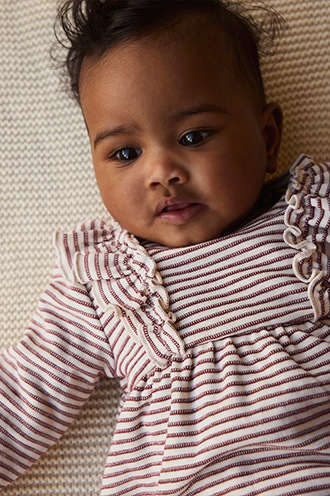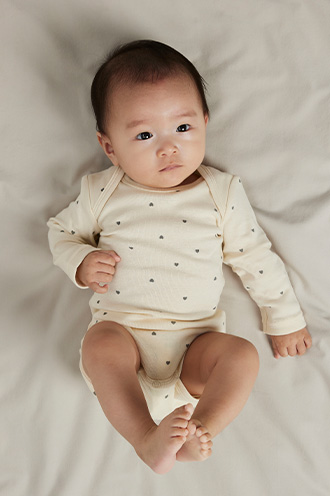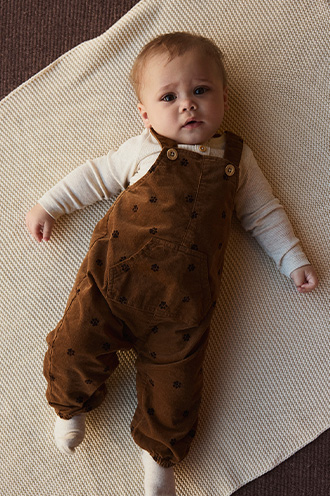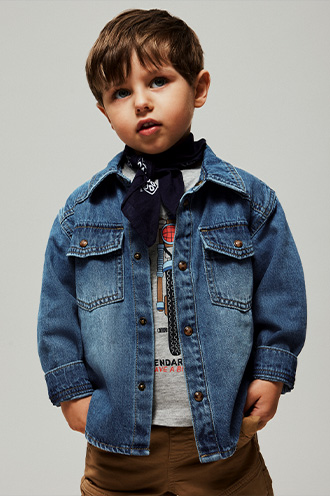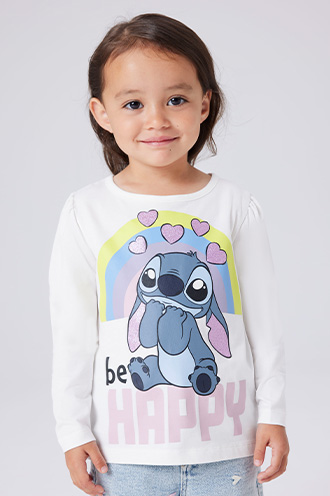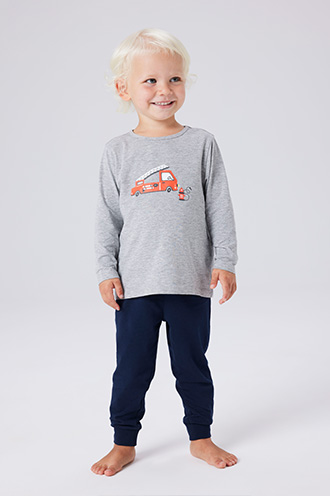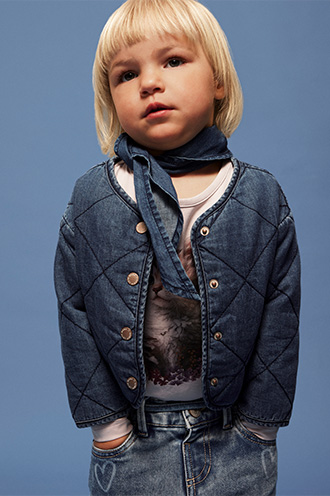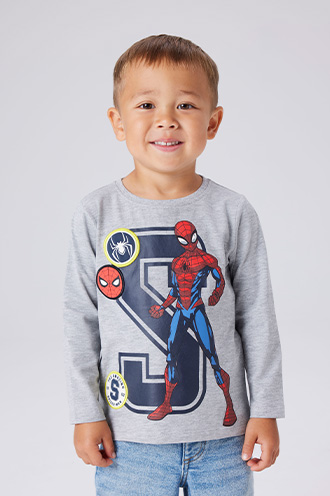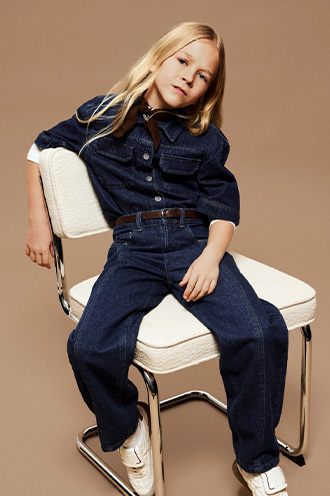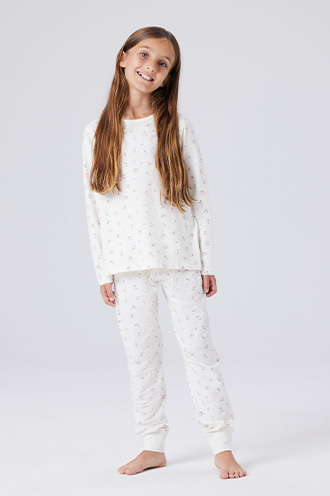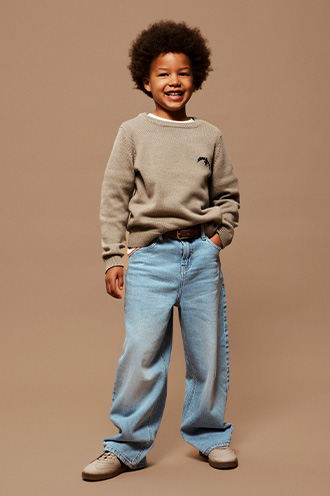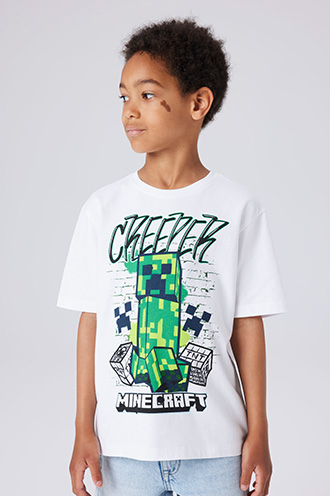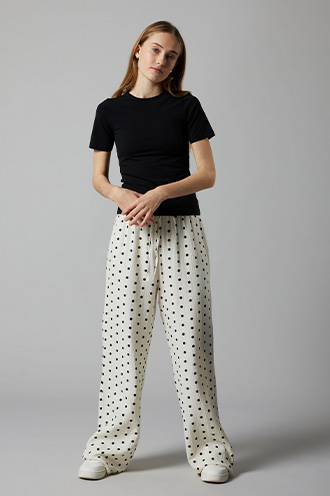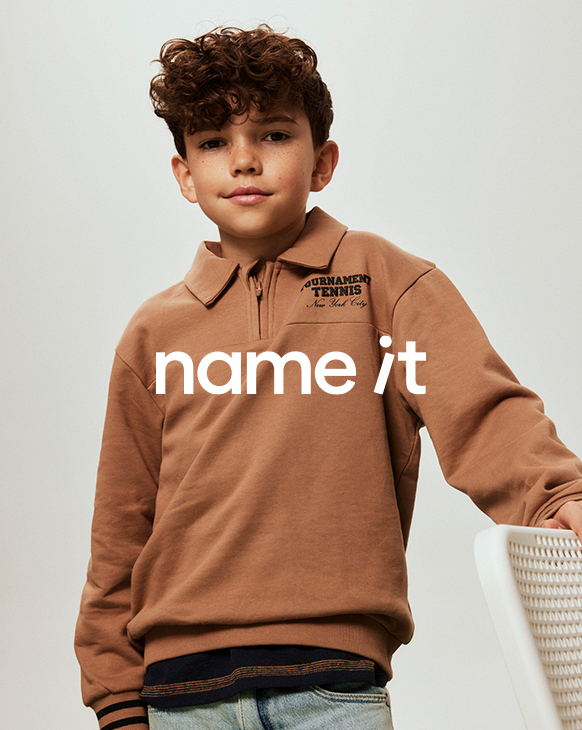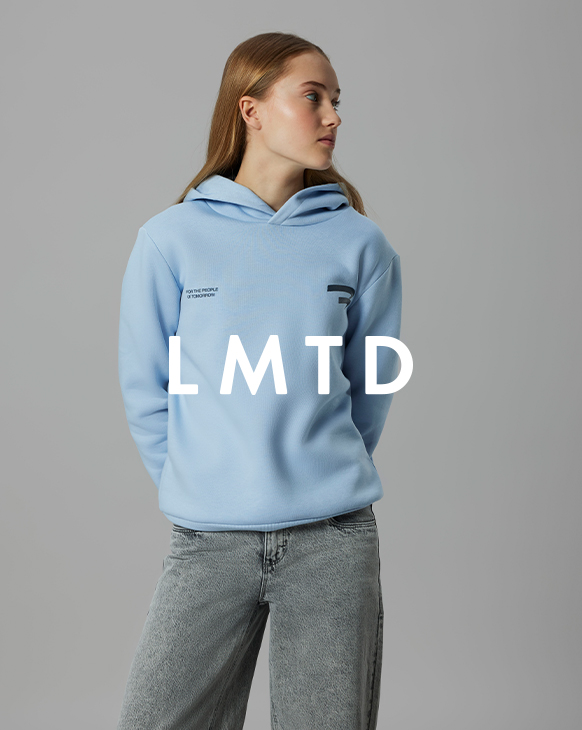Wool
Our collection of wool fabrics is crafted to perform—each blend is thoughtfully developed to offer distinct benefits like softness, breathability, flexibility, and temperature regulation. Merino wool naturally offers excellent insulation and moisture-wicking properties, making it a reliable choice for comfort in all seasons.
Cotton
Cotton is our most widely used fibre. Conventional cotton growing has a considerable impact on the environment. NAME IT is part of BESTSELLER, and we source 100% of our cotton from our cotton portfolio, which consists of organic, recycled, in-conversion, cotton made in Africa (CmiA) and Better Cotton.
All cotton used in BESTSELLER products, not sourced as organic, in-conversion or recycled cotton, will automatically be sourced as Better Cotton.
Polyester
The polyester fibre is a versatile synthetic fibre that is easy to care for. But it also uses large amounts of energy to produce, is based on non-renewable petroleum and it is non-biodegradable. Whilst we see a role for polyester as a key fibre in the near term, these characteristics mean that we need to increase our sourcing of certified and branded materials to reduce our dependency on virgin materials.
Recycled polyester
Recycled polyester is a synthetic material typically made from waste items like plastic bottles or leftover textiles waste from manufacturing.
Recycled cotton
Recycled cotton is typically made from manufacturing waste, like leftover fabric scraps or from used cotton garments and textiles.
Recycled nylon
Recycled nylon – also known as polyamide - is a synthetic material commonly sourced from leftover fabric scraps collected from the spinning factory and waste from weaving mills.
TENCEL™ Modal
TENCEL™ Modal fibres are derived from controlled or certified wood sources. TENCEL™ is a trademark of Lenzing AG.
TENCEL™ Lyocell
TENCEL™ Lyocell fibres are derived from controlled or certified wood sources. TENCEL™ is a trademark of Lenzing AG.
LENZING™ ECOVERO™
LENZING™ ECOVERO™ fibres are derived from controlled or certified wood sources and they are certified with the EU Ecolabel for environmental excellence*
*EU Ecolabel for textile products (license no. AT/016/001)
LENZING™ and ECOVERO™ are trademarks of Lenzing AG.
Branded and certified materials
Approved Fashion FWD Materials are certified and branded materials proven to have less environmental impact on the climate, when compared to conventional materials of the same category. Examples of this could be the preservation of water resources, using renewable energy and safer chemicals during production.
We use at least 50 percent of these materials in the products in this category, unless the fibre does not support a high percentage of certified and branded material due to quality issues.
Wool
Our collection of wool fabrics is crafted to perform—each blend is thoughtfully developed to offer distinct benefits like softness, breathability, flexibility, and temperature regulation. Merino wool naturally offers excellent insulation and moisture-wicking properties, making it a reliable choice for comfort in all seasons.
Cotton
Cotton is our most widely used fibre. Conventional cotton growing has a considerable impact on the environment. NAME IT is part of BESTSELLER, and we source 100% of our cotton from our cotton portfolio, which consists of organic, recycled, in-conversion, cotton made in Africa (CmiA) and Better Cotton.
All cotton used in BESTSELLER products, not sourced as organic, in-conversion or recycled cotton, will automatically be sourced as Better Cotton.
Polyester
The polyester fibre is a versatile synthetic fibre that is easy to care for. But it also uses large amounts of energy to produce, is based on non-renewable petroleum and it is non-biodegradable. Whilst we see a role for polyester as a key fibre in the near term, these characteristics mean that we need to increase our sourcing of certified and branded materials to reduce our dependency on virgin materials.
Recycled Polyester
Recycled polyester is a synthetic material typically made from waste items like plastic bottles or leftover textiles waste from manufacturing.
Recycled cotton
Recycled cotton is typically made from manufacturing waste, like leftover fabric scraps or from used cotton garments and textiles.
Recycled nylon
Recycled nylon – also known as polyamide - is a synthetic material commonly sourced from leftover fabric scraps collected from the spinning factory and waste from weaving mills.
TENCEL™ Modal
TENCEL™ Modal fibres are derived from controlled or certified wood sources. TENCEL™ is a trademark of Lenzing AG.
TENCEL™ Lyocell
TENCEL™ Lyocell fibres are derived from controlled or certified wood sources. TENCEL™ is a trademark of Lenzing AG.
LENZING™ ECOVERO™
LENZING™ ECOVERO™ fibres are derived from controlled or certified wood sources and they are certified with the EU Ecolabel for environmental excellence*
*EU Ecolabel for textile products (license no. AT/016/001)
LENZING™ and ECOVERO™ are trademarks of Lenzing AG.
Material categories
At NAME IT, we’re transparent about the materials we use and how they shape our collections. Explore each material, its key properties, and our minimum content requirements — so you know exactly what goes into your child’s favourites, from first wear to final wash.

